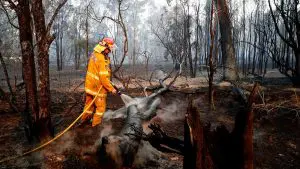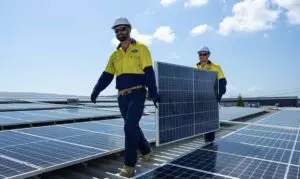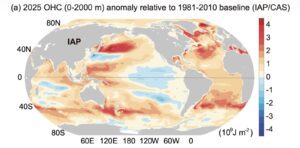The Western Australia government has thrown funding support behind seven renewable energy pilot projects, including pumped hydro storage in Walpole and a geothermal well near Dongara, in its second round of the state’s Clean Energy Future Fund.
In a statement on Friday, the McGowan government said that more than $11 million would be divided between the seven regional projects, which promised to create hundreds of jobs and generate 81,000 megawatt-hours a year of renewable power.
Western Australia launched the first round of a $9 billion Clean Energy Future Fund roughly two years ago, with the goal of supporting the development of innovative clean energy projects in the state. Applicants could seek between $250,000 and $2 million for each clean energy project.
A few months later, another $10 million was added to the CEFF’s kitty as part of the WA Recovery Plan and the government flagged that a second round of funding would be open to a broader range of projects.
That breadth was evident in the announcement of successful CEFF recipients this week, which range from solar, wind, biogas and bio-diesel generation, battery and pumped hydroelectric storage, geothermal energy, and the electrification of alumina refining processes.
“These impressive Round 2 clean energy projects will provide new local renewable energy options, improve energy security and reliability, and strengthen our economy,” said WA energy minister Bill Johnston in a statement.
“We have the resources, the highly skilled workforces and the drive in this state to create a dynamic clean energy economy.
“The Clean Energy Future Fund supports leaders, entrepreneurs and innovators in Western Australia’s clean energy sector.”
Environment minister Reece Whitby said the high level of interest and the quality of proposals submitted to the second round of the CEFF demonstrated a strong and innovative clean energy industry.
“The state government is proud to support these projects in their efforts to decarbonise existing industry and develop new low carbon industries,” Whitby said.
“These seven projects will not only reduce carbon emissions and create jobs across the state, but they will test critical low carbon technologies and support Western Australia to achieve our target of net zero greenhouse gas emissions by 2050.”
Successful Clean Energy Future Fund Round 2 projects:
– Frontier Impact Group’s Narrogin Renewable Diesel Project as part of the FutureEnergy Australia joint venture with Carnarvon Energy Ltd – $2 million – to build a high temperature pyrolysis plant to produce 18 million litres of renewable diesel per year, as well as biochar and wood vinegar.
– Power Research and Development’s Pumped-up Walpole project – $2 million – to build a 1.5MW pumped hydroelectric storage in Walpole using two farm dams to store 30MWh and increase grid reliability.
– Advanced Energy Resources’ Castelli Moora Microgrid project – $1.8 million – to build a biomass, wind and battery microgrid incorporating existing solar generation and serving a piggery and citrus farm, and potentially other farms in Moora.
– Strike Energy’s Mid West Geothermal Project – $2 million – to drill a pilot well to demonstrate geothermal energy near Dongara to enable a future 180MW project.
– Alcoa’s Electric Calcination project – $1.7 million – to pilot replacing gas with electricity for calcination of alumina to decarbonise the refining process, giving Western Australia a commercial advantage to grow a green aluminium industry with our abundant renewable resources.
– Metro Power Company’s AmbriSolar Battery Energy Storage System project – $340,000 – to add solar generation and a DC-coupled battery to an existing solar farm in Merredin.
– Alinta Energy’s Port Hedland Big Battery project – $1.5 million – to add battery storage to a gas-fired power station to replace spinning reserve, which burns gas, with energy stored in the battery to provide instant support to the grid when needed.







